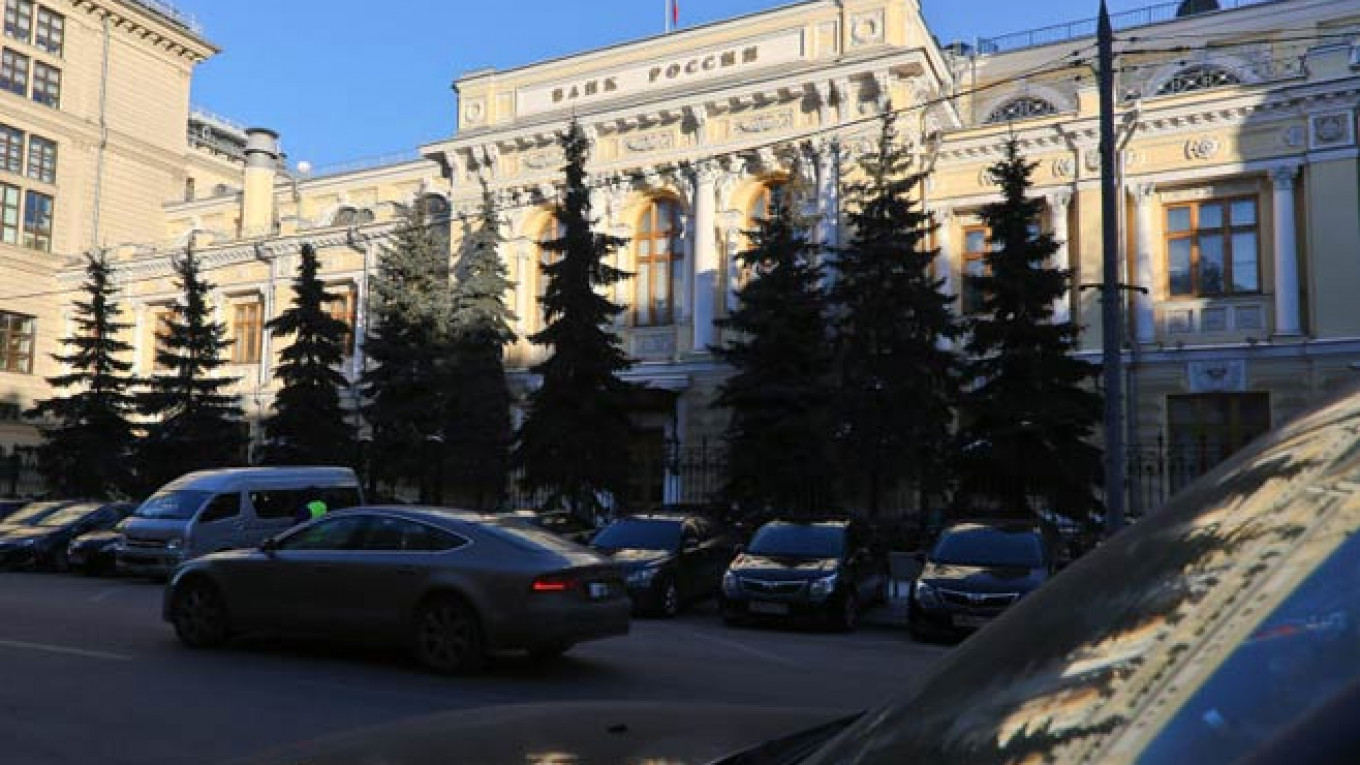International payment systems operating in Russia may be obliged to pay security deposits amounting to nearly $20 million a year to the Central Bank to guarantee their good behavior.
Amendments to legislation on a national payment system currently being considered by the State Duma have been approved by the parliament's financial markets committee, PRIME reported Wednesday.
Comparing the amendment with the state's deposit insurance scheme, under which banks contribute a fixed sum to a common insurance pot, the committee's head, Natalya Burykina, proposed "to take quarterly security deposits from international [payment system] operators equivalent to 0.25 percent of transactions processed in a day."
According to the Central Bank, payment transactions in Russia amounted to almost 26 trillion rubles ($740 billion) in 2013. About 60 percent of this was processed by Visa has a 60 percent market share. MasterCard follows with about 35 percent.
This means that combined, the two companies processed $1.9 billion per day. Each security payment of 0.25 percent daily transaction volume would amount to just under $5 million for the companies per quarter, or $20 million per year.
On March 21, a day after the U.S. slapped sanctions on Russia over its annexation of Crimea, Visa and MasterCard suspended payment services to Bank Rossiya and two other banks whose shareholders appeared on the sanctions list, prompting anxiety over the dependence of the country's financial system on foreign service providers that are unaccountable in Russia.
Legislation on the creation of a national payment service was submitted to the Duma within days of the suspension of services.
Last week, the government said that foreign banks should be allowed to participate in the construction of the payment system, but recommended that the system's uninterrupted service be required by law.
A Message from The Moscow Times:
Dear readers,
We are facing unprecedented challenges. Russia's Prosecutor General's Office has designated The Moscow Times as an "undesirable" organization, criminalizing our work and putting our staff at risk of prosecution. This follows our earlier unjust labeling as a "foreign agent."
These actions are direct attempts to silence independent journalism in Russia. The authorities claim our work "discredits the decisions of the Russian leadership." We see things differently: we strive to provide accurate, unbiased reporting on Russia.
We, the journalists of The Moscow Times, refuse to be silenced. But to continue our work, we need your help.
Your support, no matter how small, makes a world of difference. If you can, please support us monthly starting from just $2. It's quick to set up, and every contribution makes a significant impact.
By supporting The Moscow Times, you're defending open, independent journalism in the face of repression. Thank you for standing with us.
Remind me later.






